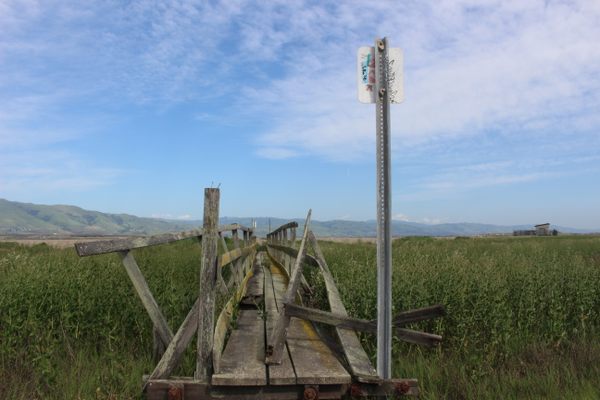Best of the Week – 2010.09.07
It’s the best of the best. You know the rest.
CHOQUEQUIRAO, PERU

(source)
Known as the other Machu Picchu, Choquequirao is a ruined Inca city in south Peru that is, for the most part, cut off from large groups of tourists. Preferred by serious hikers and outdoors enthusiasts because it can only be reached by a difficult two-day climb, Choquequirao is filled with buildings and terraces that sit below a flattened hilltop that was leveled several hundred years ago and ringed with stones to create a platform. Tucked into the Salkantay Mountain Range in the Cusco region above the valey of Rio Apurimac, only about one third of Choquequirao has been excavated.
Complete Atlas Obscura entry on Peru’s Choquequirao
TREE CATHEDRAL - Bergamo, Italy

(source)
Known for creating “natural architecture” by blending organic materials such as branches into large-scale outdoor works of environmental art, Giuliano Mauri died in 2009. A Tree Cathedral in Bergamo, Italy, was recently built as both a tribute to the artist and as the region’s contribution to the International Year of Biodiversity. As 42 beeches grow to form a basilica of five aisles, a man-made structure consisting of 1,800 fir poles, 600 chestnut branches, and 6,000 meters of hazel branches will fall away to reveal a natural church more than 90 feet long and nearly 80 feet wide.
Complete Atlas Obscura entry on the Tree Cathedral in Bergamo, Italy
TUOL SENG - Phnom Penh, Cambodia

(source)
Nestled within the heart of Phnom Penh, the capital of Cambodia, Tuol Seng looks unremarkable from the outside. A former high school with whitewashed walls and grey shutters, the building was transformed into Security prison 21 under the Khmer Rouge and is the site of some of the most violent atrocities committed during Pol Pot’s regime. Prisoners at Tuol Seng were shackled into the cells, forbidden to speak with one another, and frequently beaten and tortured by guards. Today, the former prison is now a museum dedicated to preserving the memory of those who passed through its gates.
Complete Atlas Obscura entry on Tuol Seng, Cambodia
DRAWBRIDGE, CALIFORNIA - United States

(source)
Centered around an abandoned railroad station at the southern end of the San Francisco Bay on Station Island, Drawbridge, California, has been abandoned for over three decades and is slowly sinking into the marshlands it was built on. During Prohibition, the town housed several speakeasies and brothels, taking advantage of its out-of-the-way location. The railroad tracks, which are private property, are still the only way to get into the town. Be warned: Visiting the area, currently part of the Don Edwards San Francisco Bay National Wildlife Refuge, is illegal and trains still run with some frequency on the tracks.
Complete Atlas Obscura entry on Drawbridge, California
BIG BERTHA DRUM - Austin, Texas, United States

(source)
Named for the Big Bertha Howitzer, a German cannon used in World War I, the Big Bertha drum’s low rumble punctuates each University of Texas football game. Originally commissioned by the University of Chicago in 1922, the drum was built using the largest animal hides that could be found in the Chicago stockyards. When Chicago’s football program was canceled, the drum was abandoned beneath the stadium and left radioactive after Enrico Fermi oversaw the Manhattan Project in the same space. Purchased by a wealthy Texas oilman in 1955, the drum was decontaminated and restored before moving to Texas.
Complete Atlas Obscura entry on University of Texas’ Big Bertha Drum






Follow us on Twitter to get the latest on the world's hidden wonders.
Like us on Facebook to get the latest on the world's hidden wonders.
Follow us on Twitter Like us on Facebook